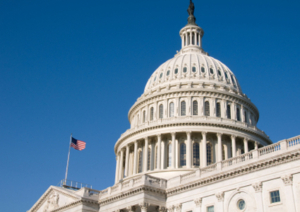SNAP Asks Feds to Withdraw Medicaid Financing Regulation
CMS should withdraw its proposed Medicaid fiscal accountability regulation, SNAP has suggested in a formal comment letter to the federal agency in response to a new regulation it proposed in November.
 According to the comment letter SNAP submitted to the Centers for Medicare & Medicaid Services,
According to the comment letter SNAP submitted to the Centers for Medicare & Medicaid Services,
SNAP is concerned that this proposed regulation would inappropriately restrict the state’s ability to finance the non-federal share of the Medicaid program, would impose significant additional regulatory burdens – the cost of which would far outstrip their benefit – would inappropriately introduce subjectivity into the application of previously clear and objective regulatory standards, and is beyond the scope of the statutory authority granted to CMS.
Learn more about SNAP’s views on the proposed Medicaid fiscal accountability regulation and why SNAP believes CMS should withdraw it in SNAP’s formal comment letter.
 Last August a new Department of Homeland Security regulation took effect that authorized the federal government to reject immigrants’ applications for visas and green cards if their financial situation and employment prospects suggested that they might become a “public charge” and dependent on government safety-net programs like Medicaid and food stamps. A number of groups sued to prevent the rule’s implementation and federal courts imposed an injunction against its enforcement but now the Supreme Court has lifted the last of these injunctions.
Last August a new Department of Homeland Security regulation took effect that authorized the federal government to reject immigrants’ applications for visas and green cards if their financial situation and employment prospects suggested that they might become a “public charge” and dependent on government safety-net programs like Medicaid and food stamps. A number of groups sued to prevent the rule’s implementation and federal courts imposed an injunction against its enforcement but now the Supreme Court has lifted the last of these injunctions. For years, county governments ran their own programs, which provided free non-emergency transportation to doctor offices for Medicaid patients. About 55,000 Pennsylvanians served by Medicaid use this program.
For years, county governments ran their own programs, which provided free non-emergency transportation to doctor offices for Medicaid patients. About 55,000 Pennsylvanians served by Medicaid use this program. In late December, PBS broadcast an interview with Centers for Medicare & Medicaid Services administrator Seema Verma. Kaiser Health News has published a transcript of excerpts from that interview during which Verma discusses Medicaid – including enrollment, eligibility, services, and children – Medicare for all, administration attempts to reduce health care costs, protection for people with pre-existing conditions, and more. Read those excerpts in the Kaiser Health News article “
In late December, PBS broadcast an interview with Centers for Medicare & Medicaid Services administrator Seema Verma. Kaiser Health News has published a transcript of excerpts from that interview during which Verma discusses Medicaid – including enrollment, eligibility, services, and children – Medicare for all, administration attempts to reduce health care costs, protection for people with pre-existing conditions, and more. Read those excerpts in the Kaiser Health News article “ The purpose of the PDL is to save money – an estimated $85 million a year, according to the Pennsylvania Department of Human Services.
The purpose of the PDL is to save money – an estimated $85 million a year, according to the Pennsylvania Department of Human Services. Included in this month’s edition are articles about:
Included in this month’s edition are articles about: At last count, various parts of Congress were considering four major surprise medical bill proposals: one from the Senate Health, Education, Labor and Pensions Committee, one from the House Energy and Commerce Committee, one from the House Ways and Means Committee, and a compromise proposal from the Senate HELP and House Energy and Commerce committees. Some have been around for some time while one emerged only in the past week.
At last count, various parts of Congress were considering four major surprise medical bill proposals: one from the Senate Health, Education, Labor and Pensions Committee, one from the House Energy and Commerce Committee, one from the House Ways and Means Committee, and a compromise proposal from the Senate HELP and House Energy and Commerce committees. Some have been around for some time while one emerged only in the past week. Authorization for delaying the cut in allotments to the states, which would have resulted in reduced Medicaid DSH payments for many hospitals – including private safety-net hospitals – would expire on May 22. Congress is expected to address Medicaid DSH, along with surprise medical bills, the price of prescription drugs, and other health care matters, before that time.
Authorization for delaying the cut in allotments to the states, which would have resulted in reduced Medicaid DSH payments for many hospitals – including private safety-net hospitals – would expire on May 22. Congress is expected to address Medicaid DSH, along with surprise medical bills, the price of prescription drugs, and other health care matters, before that time. The Medicaid and CHIP Payment and Access Commission kicked off its December meeting with highlights from its forthcoming issue of MACStats: Medicaid and CHIP Data Book, due out December 18, 2019. MACStats brings together statistics on Medicaid and State Children’s Health Insurance Program (CHIP) enrollment and spending, federal matching rates, eligibility levels, and access to care measures, which come from multiple sources.
The Medicaid and CHIP Payment and Access Commission kicked off its December meeting with highlights from its forthcoming issue of MACStats: Medicaid and CHIP Data Book, due out December 18, 2019. MACStats brings together statistics on Medicaid and State Children’s Health Insurance Program (CHIP) enrollment and spending, federal matching rates, eligibility levels, and access to care measures, which come from multiple sources.